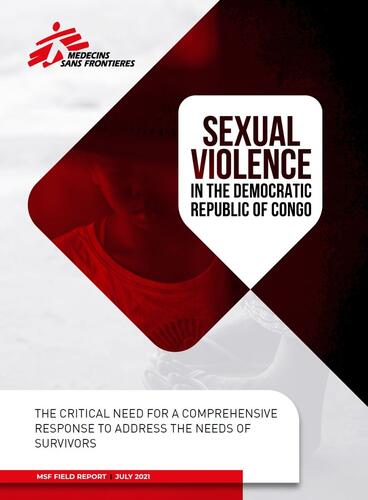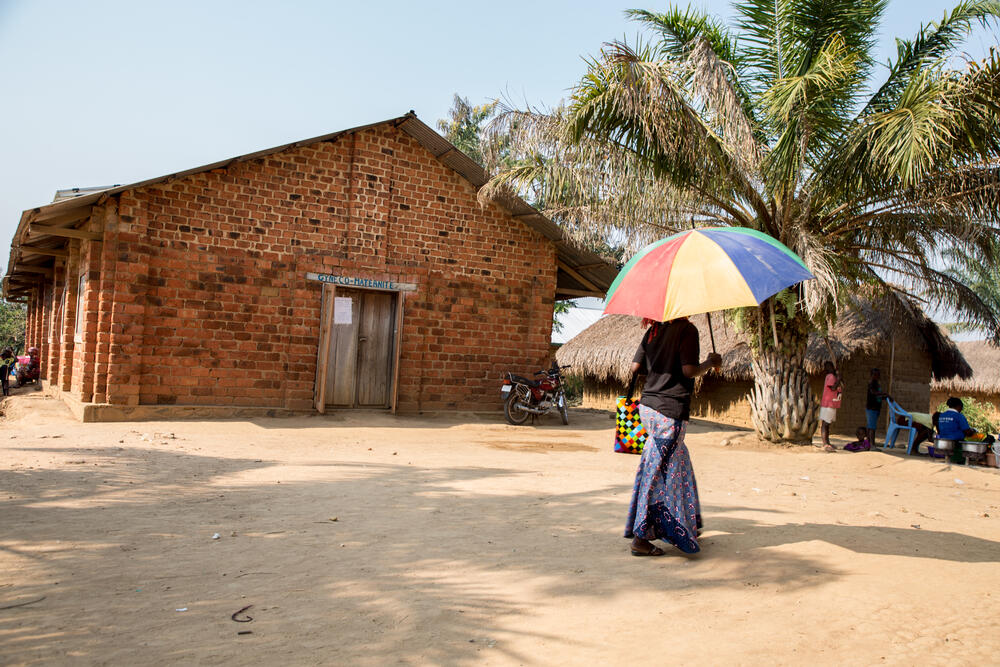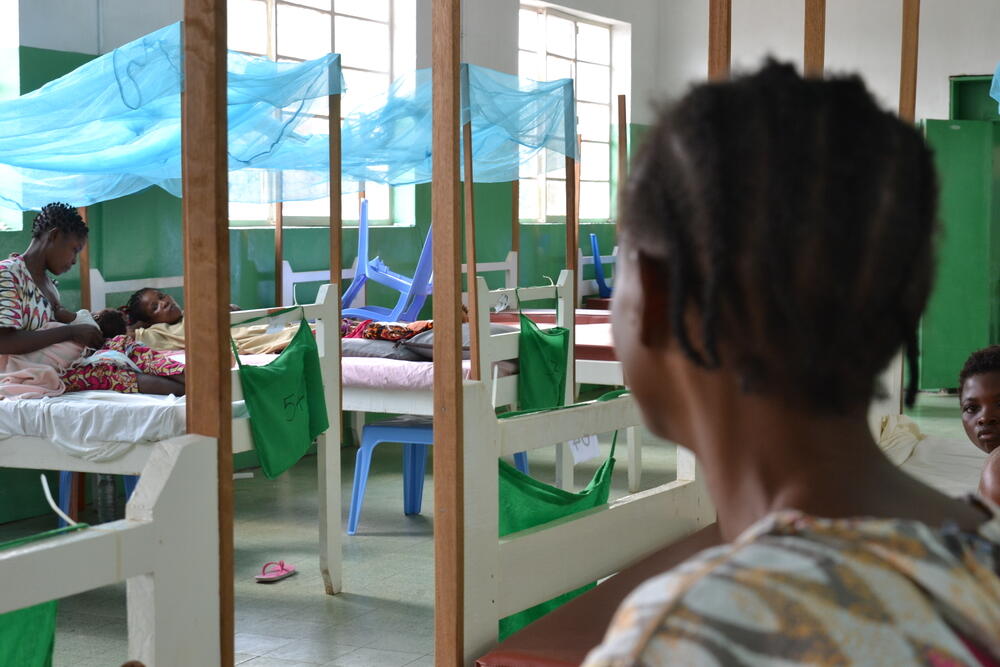Sexual violence: Inside the devastating phenomenon facing the DRC
In Salamabila, a city of 71,000 people in the Democratic Republic of Congo (DRC), the rate of sexual violence is alarming.
On average, 120 to 150 survivors come to Médecins Sans Frontières / Doctors Without Borders (MSF) for treatment every month. Some months, the numbers are more shocking – in March alone, 221 people came for a consultation.
To assist survivors – many of whom face stigma – an innovative and decentralised programme was launched by MSF. As part of this, 18 specialists known as reproductive health agents work directly with communities to identify and welcome people who have experienced this form of violence.
“Sexual violence does not only have medical consequences. It is an invisible pain.”
In addition to raising awareness about this huge social problem, the health agents can provide essential first aid in the first 72 hours after the violent event.
With proper care and medication, it is possible to avoid sexually transmitted and other diseases as well as unwanted pregnancy.
Complex consequences
In cases where the necessary care – both medical and psychological – is more complex, people are advised to seek help with the MSF team at Salamabila Regional Hospital.
Here, one of the first people they will meet is nurse Jeanne Musaganwa Mwavita.
Mama Jeanne, as she is known by everyone, has been working with MSF for more than a decade and is now part of a project for women's reproductive health, especially for survivors of sexual violence.
“In most cases, the women went to work in the fields and found armed men,” explains Mama Jeanne.
“After that, it is very difficult for them to have the courage to go back to the field, where they work to provide their livelihood.
“That is why it is so important that we not only undergo an assessment of their physical condition, but also their mental health,” says Mama Jeanne, acknowledging the importance of a holistic approach for survivors.
Crucially, two psychologists are also part of the MSF team in Salamabila. Often, their work goes beyond welcoming survivors however, as families also need support to deal with the different emotions that arise after the violence.
The stigma
Across the DRC, the vast majority of women who are raped are rejected by their husbands and their families.
In Kananga, Corneille Kangangila, the mental health supervisor at MSF’s clinic, explains the magnitude of the problem:
“Often, the patient does not suffer from any pathology but claims to feel 'pain everywhere'. For us, this is an entry point for starting psychological care,” he says.
“Sexual violence does not only have medical consequences. It is an invisible pain.
"What touches me deeply is the level of violence our patients go through. The extent of the trauma caused not only by the rape itself but also by the rejection of the survivors.”
Here in Kananga, just outside the provincial hospital, MSF runs a specialised clinic where survivors of sexual violence receive free healthcare, including this all-important psychological care.
“The first place to go after a rape must be the hospital," says Marlène Minbie, a Ministry of Health doctor who works at the MSF clinic in Kananga.
"[So the survivor can] receive the necessary medical care as quickly as possible, as well as to have access to mental health support.

“I remind everyone around me including the police that the important thing is, first of all, to tell the survivor to seek medical care. Many seek social and legal support first, which is understandable. They try to find a way to protect themselves.”
Léonie (not her real name) knows this situation well. She was raped by armed men in front of her husband and six children.
“I am no longer the same person. When I got home, my husband rejected me and kicked us out of the house, the children and me,” she says.
“I have been living with relatives for three months.”
Today, she sells everything she can along the roadside to put food on the table for herself and her children. However, many women who have experienced this same violence don’t even find a shelter and often depend on the support of specific programmes for survivors.
But, without funding to keep these programmes active, that support may never arrive.
A major emergency
In 2020, MSF medical and mental health staff assisted 10,810 survivors of sexual violence in 22 projects across the DRC. Among those treated, 98 percent were women and 62 percent sought help within the first 72 hours.
In view of its scale and consequences, sexual violence must be considered a major emergency by the Congolese authorities, donors, and all humanitarian organisations present in the country.
While MSF teams provide as much medical and psychological care to the victims as they can, the phenomenon calls for a much stronger response in terms of health, protection and the law.
The current lack of support means that the survivors are "sentenced twice", and MSF pleads that national and international efforts be rapidly scaled up in order to meet the urgent and long-term needs of all victims.
MSF and sexual and gender-based violence
Sexual and gender-based violence (SGBV) is a medical emergency.
We strive to make comprehensive healthcare available to survivors of sexual violence, regardless of their age or gender, in all of our projects.
Sexual violence shatters the lives of millions across the globe. It can occur in any society at any time but often increases in unstable situations, such as armed conflicts.

